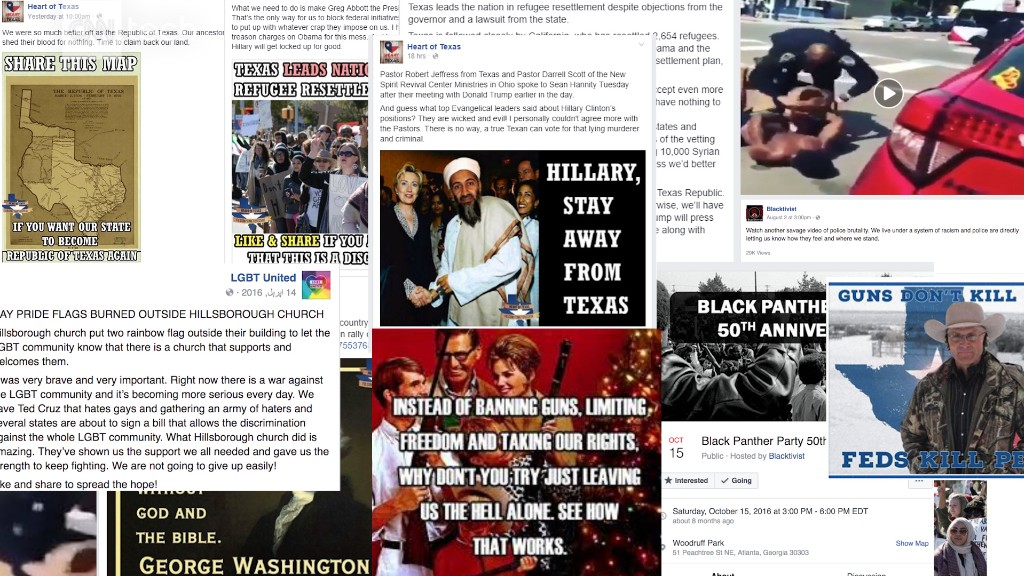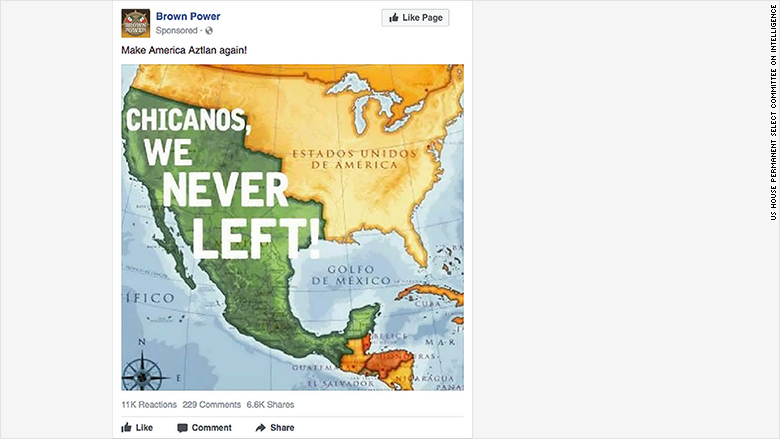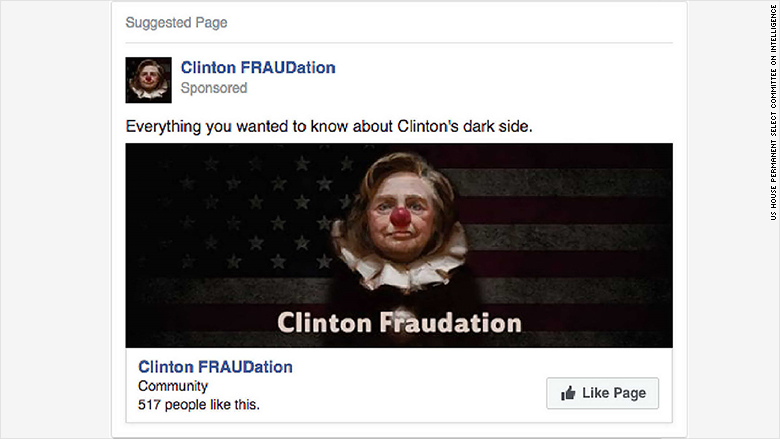
The Russian government-linked troll group indicted by special counsel Robert Mueller in February targeted more parts of the American population than had previously been reported, documents released Thursday by Democrats on the House Intelligence Committee show.
The release includes more than 3,000 Facebook and Instagram ads purchased by the troll group, known as the Internet Research Agency, between 2015 and 2017. The committee had previously released only a few dozen ads, making Thursday's disclosure the most comprehensive insight into the trolls' paid online activity that is publicly available.
CNN and others have previously reported on how the Russian group operated a network of thousands of fake social media accounts that were designed to look like they were run by real American activists — including fake groups imitating Black Lives Matter, Muslims and Donald Trump supporters.
Thursday's release shows the Russians also targeted Mexican-Americans.
It's not clear exactly when the Russian page targeting Mexican-Americans was set up, but in 2017 it had more than 200,000 followers and many of its posts were shared thousands of times, the records released by the House Intelligence Committee show. The group also had a presence on Instagram.
Related: The unwitting: The Trump supporters used by Russia
The page was titled "Brown Power," and featured artwork that showed a clenched fist surrounded by Mexican flags.
One ad promoting the page on Facebook in December 2016 included the message "Brown power is a platform designed to educate, entertain and connect Chicanos in the US."
The Russian group spent almost 60,000 Rubles, approximately $1,000, promoting the ad. It appeared in Facebook news feeds almost one million times.
The ad was targeted at people living in the US whose interests fell into the Facebook categories, "Mexico, Latin hip hop, Chicano Movement, Hispanidad, Low rider or Chicano rap."
The page regularly posted statements that appeared to challenge of rhetoric of the nascent Trump administration.

"We didn't come to steal your jobs, we came to make a living," one post read in part, "We're not here to murder, rape, and steal; we're here to escape that."
That post was shared almost 100,000 times on Facebook.
Other posts pointed out that Mexico ceded some land to the U.S. after the Mexican-American war in the 19th century, "How can we be illegal on our own land? The United States unfairly took from Mexico what is now the Southwest of the country," the page claimed.
Related: How the Russians did it
At the same time it was promoting pro-immigration messages to Mexican-Americans in early 2017, the troll group was also promoting nationalistic pages, including "South United," which touted a Confederate flag in its advertising.
One of the troll group's primary goals was apparently to spread chaos in U.S. politics. As such, it often sought to incite both sides of the political debate -- even at one point promoting both a protest and a counterprotest in the same place.
But it did also take sides. The indictment of the Internet Research Agency alleges that in February 2016, staff at the troll factory were instructed to "use any opportunity to criticize Hillary and the rest (except Sanders and Trump - we support them)."
One ad run in the summer of 2016 read, "Donald Trump is afraid that the 2016 general election will be 'rigged' against him. There's no doubt he has reasons to think so."
The group also set up a page called "Clinton FRAUDation" that touted itself as "Everything you wanted to know about Clinton's dark side." The page doesn't appear to have picked up more than a few hundred likes, according to the records released on Thursday.

Rep Adam Schiff, the top Democrat on the House Intelligence Committee, said in a statement it was important for Americans to see the ads.
"The only way we can begin to inoculate ourselves against a future attack is to see first-hand the types of messages, themes and imagery the Russians used to divide us," Schiff said.
In a blog post on Thursday morning, Facebook said it had given the ads to Congress "so they could better understand the extent of Russian interference in the last US Presidential election."
The company acknowledged it was "slow to spot this type of information operations interference" in 2016, and outlined ten steps it says it's taking that will help it tackle this in the future.
"This will never be a solved problem because we're up against determined, creative and well-funded adversaries. But we are making steady progress," Facebook said.
Facebook said last fall that 11 million people saw the 3,000 ads that were purchased by the Internet Research Agency. However, more than 120 million Americans may have been exposed to regular Facebook and Instagram organic posts that were not ads were published by the troll group.
The House Intelligence Committee said the troll group posted 80,000 pieces of organic content. Facebook has provided the full cache to Congress and the committee said it hopes to release it publicly in the future.
-- CNN's Manu Raju and Aaron Kessler contributed reporting.

